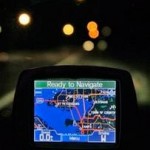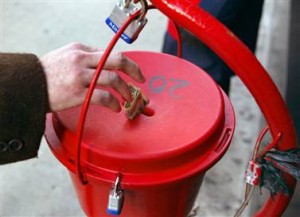Contributed by Bill King, Blacksburg, VA
Warm-up Question
Think about the person with whom you most enjoy spending time. What makes that person’s company so pleasant?
Being Benny Blowhard
Are you a “Chatty Cathy” or a “Benny Blowhard”? Everyone knows somebody who is long-winded and we usually regard such people as boring and self-absorbed. But according to Marty Nemko, Kiplinger.com columnist, you could be that person and not know it. He offers a few questions you can ask yourself to determine whether others are secretly looking for an open window to jump out of when they see you coming:
- Do my pronouncements routinely exceed one minute?
- Do I wander off on tangents?
- Do my listeners often show signs of lack of interest?
- Have my friends ever called me oblivious, egocentric, or selfish?
- Do I blather on about details which interest me but are of little interest to my listener?
- Do others avoid making eye contact when they pass me for fear of getting into a long conversation?
 Nemko says you pay a high price when people perceive you as a big mouth. You will be held in low esteem and are likely to have fewer friends. But all is not lost; there are things you can do to remedy the situation: Be concise. Be alert to your listener’s non-verbal clues. Periodically pause and ask a question (“What do you think?”). Nemko suggests that you adopt the “traffic light rule.” For the first thirty seconds assume the light is green and the listener is probably not bored. In the next thirty seconds the light turns yellow and the risk of boring increases. After sixty seconds, think red and realize that running the light with that favorite story is dangerous.
Nemko says you pay a high price when people perceive you as a big mouth. You will be held in low esteem and are likely to have fewer friends. But all is not lost; there are things you can do to remedy the situation: Be concise. Be alert to your listener’s non-verbal clues. Periodically pause and ask a question (“What do you think?”). Nemko suggests that you adopt the “traffic light rule.” For the first thirty seconds assume the light is green and the listener is probably not bored. In the next thirty seconds the light turns yellow and the risk of boring increases. After sixty seconds, think red and realize that running the light with that favorite story is dangerous.
“Remember,” says Nemko, “If you care about other people, you’ll make them part of the conversation… Think of it this way: Big talkers learn little. Good listeners learn a lot.”
Source: http://www.kiplinger.com/magazine/archives/2007/04/nemko.html
Discussion Questions
- Why do you think some people talk so much, even to the point of not realizing they bore their listeners?
- How might the “traffic light rule” apply to Facebook, texting, and IM?
- What is the best way, both effective and kind, to tell someone that he or she talks too much?
Scripture Texts (NRSV) for Sunday, January 31, 2010 (Fourth Sunday After Epiphany)
(Text links are to Oremus Bible Browser. Oremus Bible Browser is not affiliated with or supported by the Evangelical Lutheran Church in America. You can find the calendar of readings for Year C at Lectionary Readings.)
For lectionary humor and insight, check the weekly comic Agnus Day.
Bible Reflection
He could have stopped while he was ahead. The home town boy had come home to great acclaim. “Yes sir,” they were saying, “that Jesus has turned out to be quite a preacher—knows his Bible backwards and forward.” The text he’d picked from Isaiah was always a crowd pleaser. Those words about release to the captives, sight to the blind, and liberty for the oppressed—that sounded great to people who lived every day with their noses rubbed in their insignificance to the empire which ruled them. Despite all appearances they were important. God had not forgotten them; someday there would be a reckoning. The world would see how special they were. Just hearing the prophet’s words read gave the whole congregation a warm feeling. All Jesus had to do to end the day very well-liked was to stop talking.
 But being popular was never a high priority for Jesus. So he reminds the congregation of an inconvenient truth: God seems to care about everyone, Jew and Gentile. There were plenty of hungry Jewish widows when God sent Elijah to Sidon. Even more offensive to those who assumed God’s love was only for Israel, Jesus points out that God directed Elisha to heal a foreign conqueror when there were plenty of pious lepers among the Chosen People. In an instant Jesus went from hometown hero to outsider on the lam.
But being popular was never a high priority for Jesus. So he reminds the congregation of an inconvenient truth: God seems to care about everyone, Jew and Gentile. There were plenty of hungry Jewish widows when God sent Elijah to Sidon. Even more offensive to those who assumed God’s love was only for Israel, Jesus points out that God directed Elisha to heal a foreign conqueror when there were plenty of pious lepers among the Chosen People. In an instant Jesus went from hometown hero to outsider on the lam.
Theologian Elton Trueblood observed that “the world is equally shocked at hearing Christianity criticized and seeing it practiced.” We hear about God’s love and get a warm feeling. It’s good to know that nothing we can do will separate us from God. We gather with the community in Christ, sing happy songs, and take comfort from the support which surrounds us. Nothing wrong with that. But then Jesus has the audacity to suggest that he might love the folks who are not like us. He might care about those who practice other religions, live in countries at war with our own, have a different colored skin, or have a lifestyle we find offensive. Even more appalling, he seems to want us to love them too. Then we are not so sure we like this God after all.
Unconditional, expansive love is fine in the abstract—but, Jesus, I was really thinking it meant that you love folks fundamentally like me and mine. You mean it includes precisely those I find most offensive? Lord, if you think I am going to do that, there is the cliff I’d like you take a step off of…
Sometimes we get in trouble for talking too much. The question is whether people find us offensive because we are not saying anything worth hearing or because what we are saying is so filled with God’s Word that it is hard to hear and remain unchanged.
Discussion Questions
- Who are the outsiders beyond your community which you resist including in God’s care?
- Can you remember a time when expressing God’s love for all people caused you to be excluded or rejected?
- Many persons say the church is losing members because it is like a boring speaker who talks too much and never listens? Do you think that is true? How could the church listen to those beyond its fellowship?
Activity Suggestions
-
Have your group role play the scene at the synagogue described in Luke 4. In order to capture the full drama you will need to expand the gospel reading to include verses 16-20. Invite the group to imagine how the mood in the synagogue would have changed as Jesus read and then offered an expansive interpretation of the text from Isaiah. You might want to cast the scene to include Jesus’ family, the leader of the synagogue, older folks who had known Jesus as a boy, some of his peers growing up, and members of the Jewish community.
-
Place a chalice and paten in the center of the meeting space. Give participants a number of small slips of paper printed with “The body and blood of Christ are given for_________.” Ask participants to write in the name of those persons or groups they find hardest to love. Invite them to consider both large categories and the individuals with whom they interact daily. When all have filled out as many slips as they wish, put all the slips on the paten or in the chalice. Talk about why it is hard to love some people and how imagining them at the Lord’s table might change our attitude toward them. End with the prayer below.
Closing Prayer
Lord, who always listened to the longings of those you met, open our ears, that we may compassionately hear the hurts and needs of all whom we encounter this week. May no person, through our words or deeds, feel excluded from your love. In the name of Him who broke down the dividing wall between Jew and Gentile, we make our prayer. Amen.


 Other charitable organizations in the Charleston area received large checks, supposedly from Force Protection, Inc., a manufacturer of armored trucks, but only the Salvation Army cashed theirs. Force Protection knew nothing about the “gifts,” which were drawn on a bank account closed months before. The case is being investigated, but no arrests have been made.
Other charitable organizations in the Charleston area received large checks, supposedly from Force Protection, Inc., a manufacturer of armored trucks, but only the Salvation Army cashed theirs. Force Protection knew nothing about the “gifts,” which were drawn on a bank account closed months before. The case is being investigated, but no arrests have been made. This was the scene a few weeks ago, until Teka met Veronica at the shelter. Veronica was moving into her own apartment soon. She invited Teka to help her move, in exchange for food and baby clothes. Teka agreed, her hope renewed by the chance to provide for her unborn child. When they arrived at the apartment, things took a turn for the worst. Veronica locked the door and tied Teka’s hands behind her back. She came at Teka with a knife, saying, “You’re strong, you can handle what I’m going to do to you.” Veronica then cut into Teka’s abdomen in an attempt to remove the baby. A few months earlier, Veronica had lied to her friends and family, telling them that she was pregnant. She was trying to remove Teka’s baby and take it as her own.
This was the scene a few weeks ago, until Teka met Veronica at the shelter. Veronica was moving into her own apartment soon. She invited Teka to help her move, in exchange for food and baby clothes. Teka agreed, her hope renewed by the chance to provide for her unborn child. When they arrived at the apartment, things took a turn for the worst. Veronica locked the door and tied Teka’s hands behind her back. She came at Teka with a knife, saying, “You’re strong, you can handle what I’m going to do to you.” Veronica then cut into Teka’s abdomen in an attempt to remove the baby. A few months earlier, Veronica had lied to her friends and family, telling them that she was pregnant. She was trying to remove Teka’s baby and take it as her own.